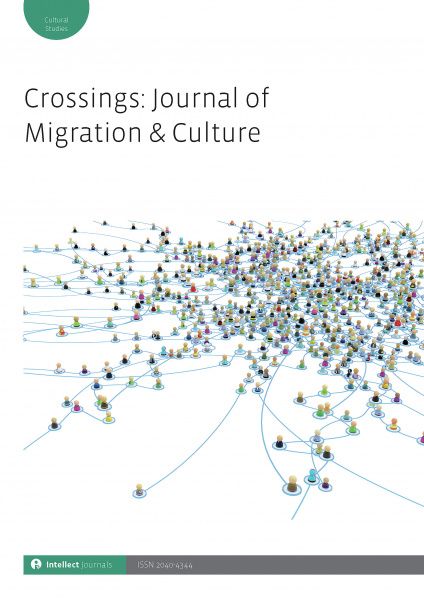Crossings: Journal of Migration & Culture is a peer-reviewed journal that offers a space for debates on the important nexus of migration and culture. It promotes diverse global and local perspectives by fostering cutting-edge research in this area, with a strong emphasis on interdisciplinary methodologies.

Crossings: Journal of Migration & Culture situates itself at the interface of Migration Studies and Cultural Studies. The terminology and key concepts in use in discourses on migration have yet to be sufficiently theorized or understood from theoretical perspectives linked to cultural studies, although migration is intrinsically linked to questions of culture. The course of cultures at both local and global levels is crucially affected by migratory movements. In turn, culture itself is turned migrant.
This journal's scope will be global, with a predominant focus on migration and culture from the latter half of the twentieth century to the present-day. Apart from the inclusion of refereed articles, Crossings: Journal of Migration & Culture will include a section of reviews of films, music, photography, exhibitions or books on migration-related topics, interviews with cultural practitioners who focus on migration-related topics, and oral histories of migrant cultural experiences.
The course of cultures at both local and global levels is crucially affected by migratory movements. In turn, culture itself is turned migrant. This double-blind peer-reviewed journal will advance the study of the plethora of cultural texts on migration produced by an increasing number of cultural practitioners across the globe who tackle questions of culture in the context of migration. They do this in a variety of ways and through a variety of media. To name but a few relevant aspects of this juncture of migration and culture, questions of dislocation, travel, borders, diasporic identities, transnational contacts and cultures, cultural memory, the transmission of identity across generations, questions of hybridity and cultural difference, the material and oral histories of migration and the role of new technologies in bridging cultures and fostering cultural cross-pollination will all be relevant. Methodologies of research will include both the study of ‘texts' and fieldwork. Please e-mail the editor at p.nair@qmul.ac.uk to submit a manuscript or for any additional questions or information.
